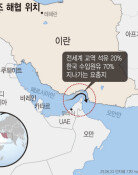Illegal finance criminal schemes grow even more sophisticated
Illegal finance criminal schemes grow even more sophisticated
Posted February. 21, 2024 07:39,
Updated February. 21, 2024 07:39

The government declared a war on illegal finance and stepped up efforts to crack down on related crimes, but the methods of committing crimes to evade crackdowns and penalties are evolving. Utilizing quick services for debt collection or operating in the form of shadow organizations to disrupt police investigations are some examples. Experts emphasize that while strengthening enforcement and penalties are crucial to reducing the damage caused by illegal finance, policy focus should also be directed towards promoting awareness and diversifying demand to prevent such crimes.
Two members of the illegal finance organization A, Kim, and Park, in their 20s, have engaged in illegal finance crimes in cities including Yeosu in South Jeolla Province, Cheonan in South Chungcheong Province, and Cheongju in North Chungcheong Province since 2021. By the end of 2022, they had facilitated loans amounting to 4 billion won at an exorbitant rate of up to 5,200% over 10,000 transactions. During the same period, they collected over 2.8 billion won in criminal profits under the pretext of interest and late fees, causing numerous victims through ruthless illegal debt collection methods.
It was early last year that these two individuals were arrested. They were able to dodge investigations for about two years due to their organization's thorough management system and operation in the form of a shadow organization. The ‘organization A,’ composed of teams such as the call, interview, collection, withdrawal, and general affairs teams, had a structure where not only members of different teams but also members within the same team did not know each other.
The crew of the interview and collection teams were required to use predetermined nicknames instead of their real names. Personal communication or offline meetings were strictly prohibited. Only disposable phones and bank accounts were allowed during work hours, and portable Wi-Fi instead of public Wi-Fi had to be used.
Members of the withdrawal team also strictly adhered to the rules set by the criminal ring. They withdrew from only one bank using one debit card, and when delivering it, they parked in places without closed-circuit television (CCTV). Even when going home, they had to park more than 3 kilometers away from their house and walk back home.
In a trend where demand for illegal finance increases due to economic recession and high interest rates, it is not easy to prevent evolving crimes that continue to pursue high profits, no matter how much enforcement is strengthened. In fact, recently, there has been a rise in modified forms of illegal finance targeting low-credit borrowers and high-credit individuals such as employees of large companies. In such cases, they utilize methods not involving disposable phones or bank accounts while earning high profits, making executing enforcement and punishment even trickier.
Experts agree that the government cracking down on illegal finance crime organizations should be achieved through more vigorous enforcement and prevention of damage and diversification of demand. "Even during a surge in voice phishing crimes, enforcement alone showed clear limits in curbing crimes," a financial industry official said. "It is effective to promote awareness among more people about crime methods and severity and to diversify emergency financial assistance channels for low-credit borrowers."
facthee@donga.com







